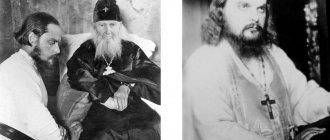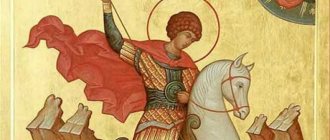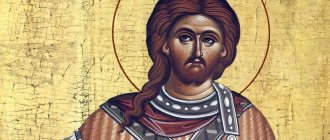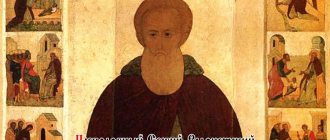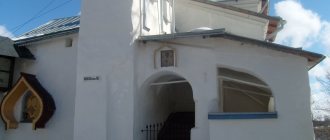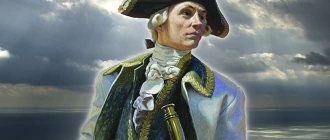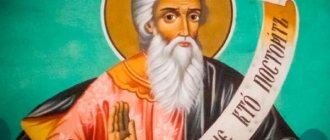The folk holiday Boris and Gleb is celebrated on August 6 (July 24, old style) every year. On this day, the Orthodox Church honors the memory of the innocently killed martyrs of the blessed princes Boris (in the Holy Baptism of Roman) and Gleb (in the Holy Baptism of David).
Other names for the holiday: Boris-Gleb Bessonniki, Palikopna, Boris and Gleb Summer.
The blessed prince-passion-bearers Boris and Gleb are the first saints who were canonized by the Russian Church. Their feat reveals one of the amazing facets of Christianity. Boris and Gleb did not want to participate in the internecine war with their older brother Svyatopolk - they meekly accepted martyrdom and forgave their killers.
Historians know little about the younger sons of Vladimir the Baptist. Boris and Gleb (baptized Roman and David, respectively) were the sons of the Kyiv prince from the Byzantine princess Anna from the Macedonian dynasty. As soon as the boys grew up, Vladimir gave each a city as an inheritance: Boris - Rostov, and Gleb - Murom.
It is difficult to judge what the princes looked like; however, a description of Boris’s appearance has been preserved, but written down half a century after his death. “The Legend of Boris and Gleb” says that the young man was “handsome in body, tall, round in face, broad shoulders, thin in the waist, kind in his eyes, cheerful in face.”
It is impossible to find such meager information about Gleb; one can only trust one’s imagination or iconographic tradition, which depicts Gleb as very young, long-haired and beardless. That's all that has survived to this day about the two young princes. As if they did not stand out in any way among Vladimir’s other offspring.
It should be noted that Prince Red Sun was a father of many children, from different wives he had several sons: Vysheslav from the Scandinavian Olova, Svyatopolk (by blood - the son of Yaropolk’s brother killed by Vladimir), Izyaslav, Yaroslav and Vsevolod - from Yaropolk’s wife captured by the prince after fratricide Rogneda, Mstislav, Stanislav and Sudislav from Adelya, Svyatoslav from the “Czech woman” Malfrida, Pozvizd, whose mother is unknown, and the children of Anna of Byzantium Boris and Gleb.
Boris and Gleb were the only of his sons born in Christianity, that is, according to the Baptist, his most legitimate children. The blood of the Byzantine basileus flowed in them, who at that time still remained a model and authority for Russian rulers.
According to fragmentary chronicles, Vladimir kept Boris with him, thinking of transferring the great reign to him, and even subordinated his squad to him. However, by the time of the death of his parent, Boris went on a campaign against the Pechenegs, and Gleb remained in his inheritance - Murom. After the death of the father, a struggle for the throne and land broke out between his sons.
At the moment, there are two versions of who exactly ordered the murder of the brothers in 1015. One of them claims that they died on the orders of their elder half-brother Svyatopolk the Accursed. Another says that the culprit of their death was Yaroslav the Wise, who was also their half-brother.
Because they humbly accepted martyrdom from their fellow believers, the church canonized Boris and Gleb as saints.
The noble passion-bearing princes Boris and Gleb. © Icon painter Viktor Morozov 2006.
When is Boris and Gleb Memorial Day in 2022?
The Day of Remembrance of Saints Boris and Gleb will be celebrated three times in 2022.
- August 6
is the day of remembrance of the holy princes Boris and Gleb. - September 18
- murder of Gleb, in the Holy Baptism of David. - May 15
- transfer of the relics of Boris and Gleb.
According to the old style, the day of memory of Boris and Gleb was celebrated on the church calendar on July 27. The day of the murder of Gleb according to the church calendar is September 5. The transfer of the relics of Saints Boris and Gleb is celebrated by the Orthodox Church according to the old style - May 2. The dates are not moving; they are celebrated by the Orthodox Church on the same day every year.
Signs of Borisov's Day May 15
Almost all folk Christian holidays, which include Boris's Day, have signs and traditions associated with them. So, on May 15 it is customary to plant cucumbers and pumpkins. To get a good harvest, you need to bury the pestle from the mortar. From this holiday, the fields begin to be sown.
Signs on Boris's Day:
- the loud singing of nightingales promises the onset of real summer;
- nightingale singing throughout the night promises a sunny day;
- the nightingales sang before the cuckoos - summer will be happy;
- the rising of a clear sun promises a sunny summer;
- It often rains during May - there will be a large harvest;
- the singing of a nightingale during the flowering of bird cherry - to a cold snap for 14 days;
- a strong westerly wind bends the branches - the next day the weather will be clear;
- In the morning you can hear a nightingale singing - a good day;
- when the nightingales begin to sing, it is time to sow the fields;
- warm holiday - there will be dark bread;
- a cat is warmed up in the sun and is sleeping - the weather will be warm;
- not hearing the nightingale sing means colder weather, rainy days;
- cloudless sunset - summer will be dry.
Life of Saints Boris and Gleb
Boris and Gleb were the youngest sons of the Holy Equal-to-the-Apostles Prince Vladimir. Vladimir had twelve sons from different wives. Vladimir's older children often quarreled with each other; they were born at a time when the prince was trying to strengthen the pagan faith. Boris and Gleb were born later, during the years of the Baptism of Rus'. Their mother was from Volga Bulgaria. The brothers were raised in Christian piety and loved each other.
When his sons began to grow up, Vladimir entrusted them with the management of the territories. Boris got Rostov, and Gleb got Murom. Gleb's reign in Murom was not easy. They say that the Murom pagans did not allow him into their city, and the prince had to live outside the city walls, in the suburbs.
Prince Vladimir loved Boris more than his other sons, trusted him in many ways and intended to transfer Kyiv and the great reign to him. Boris was married to Agnes, a Danish princess, and over time became famous as a brave and skillful warrior. Shortly before his death, Grand Duke Vladimir called Boris to Kyiv and sent him with an army against the Pechenegs. Soon after Boris's departure, Vladimir died, and Svyatopolk took advantage of his position and arbitrarily seized power in Kyiv, proclaiming himself the Grand Duke of Kyiv. He set out to quickly get rid of his rival brothers before they did anything and hid his father’s death. Vladimir's body was wrapped in a carpet and taken to Kyiv, to the Church of the Most Holy Theotokos, where they buried him without giving him due honors.
Boris, meanwhile, returned back to Kyiv. The news of his father's dormition and Svyatopolk's enthronement found him on the banks of the small river Alta. The squad persuaded him to go to Kyiv and take the grand-ducal throne, but Holy Prince Boris, not wanting internecine strife, disbanded his army. Boris remained on the Altinsky field with only a few of his servants.
Svyatopolk sent Boris a false message with an offer of friendship. He himself, in secret from everyone, sent hired killers to kill Boris. Boris was informed of such treachery by Svyatopolk, but did not hide and, like the martyrs of the first centuries of Christianity, readily met the end. The murderers overtook him while he was praying at Matins on Sunday, July 24 (old style), 1015, in his tent on the banks of the Alta River. His body was wrapped in a tent, placed on a cart and taken to Kyiv. There is a version that Boris was still breathing on the road and, having learned about this, Svyatopolk sent two Varangians to finish him off. Boris's body was brought secretly to Vyshgorod and buried in the Church of St. Basil. He was about 25 years old.
Prince Gleb of Murom was still alive. Svyatopolk lured Gleb to Kyiv by cunning, sending a message that his father was seriously ill. On the way, Gleb was overtaken by a messenger from his brother Yaroslav, who warned him about the treachery of Svyatopolk. Deeply grieving, the holy prince chose to die rather than go to war with his brother. Gleb’s meeting with the killers took place at the mouth of the Smyadyn River, not far from Smolensk. Gleb was stabbed to death by his cook Torchin, on the orders of the killers. Gleb was about 19 years old. His body was thrown on the shore, and so lay in obscurity, between two logs. Only many years later, by order of Prince Yaroslav, it was moved to Vyshgorod and placed in the Church of St. Basil next to Boris. Later, Yaroslav the Wise built a stone five-domed Boris and Gleb Cathedral on this site.
The noble princes Boris and Gleb did not want to raise their hands against their brother, but the Lord Himself took revenge on the power-hungry tyrant. Prince Yaroslav, having gathered an army, moved to Kyiv and expelled Svyatopolk from Rus'. The decisive battle between them took place in 1019 on the Alta River - at the very place where Saint Prince Boris was killed. According to the chroniclers, when the defeated Svyatopolk fled from the battlefield, illness attacked him, so that he weakened all over and could not even mount a horse, and was carried on a stretcher.
The noble passion-bearing princes Boris and Gleb. Orthodox calendar for May 15
Main church holidays, days of remembrance of saints and Orthodox shrines of today
May 15 (May 2 according to the “old style” - the church Julian calendar). Friday of the 4th week of Easter (fourth week after the Holy Resurrection of Christ). Fast day . Today, nine Christian saints are commemorated, as well as a celebration in honor of one revered shrine. Next we will briefly talk about them.
***
Transfer of the relics of the noble Russian passion-bearing princes Boris and Gleb, in Holy Baptism of Roman and David . The honorable remains of these saints of God, the first glorified Russian saints, were found and solemnly transferred in 1072 and 1115 from the Nativity of Christ, respectively.
The sons of the Equal-to-the-Apostles Grand Duke of Kiev Vladimir , these saints the 11th century from the Nativity of Christ were supposed to become the heirs of the young Christian power, but their path turned out to be different: the young princes Boris and Gleb ended their earthly lives tragically. Having given all Russians the main historical example that people vested with almost unlimited power are capable of voluntarily sacrificing it. And not only with power, but also with life.
Holy Truth: Blessed Princes Boris and Gleb - the first Russian passion-bearers
And at the same time, the strict veneration of the noble princes Boris and Gleb in Rus' was never a reason for preaching such Tolstoy’s “non-resistance to evil.” After all, the passion-bearers did not humble themselves before an external enemy. On the contrary, the Church has been glorifying them for centuries precisely as the patron saints of our land and the Heavenly patrons of all Russian rulers. And today the story of the faithful Boris and Gleb and the fratricide Svyatopolk the Accursed is especially important to remind those rulers who are trying to destroy the unity of the Orthodox Russian world. The very world of Holy Rus', which was created by Equal-to-the-Apostles Prince Vladimir.
You can learn more about the faithful prince-martyrs, their martyrdom and lesson, as well as about the Moscow shrine dedicated to these holy sufferers from our material published on the pages of Constantinople.
***
Saint Athanasius the Great, Archbishop of Alexandria. Photo: pravoslavie.ru
Saint Athanasius, Archbishop of Alexandria . Great church teacher and theologian, author of numerous spiritual works, Primate of the Alexandrian Church in 328-373 AD. He became famous as a fighter against paganism, Judaism and heresies.
Martyrs Esper of Attalia (Pamphylian), his wife Zoe and their sons Cyriacus and Theodulus . Early Christian sufferers who accepted the most severe tortures and crowns of martyrdom for loyalty to the Lord and His Church during the reign of the pagan emperor Hadrian, who reigned in the Roman Empire in 117-138 AD .
Holy Tsar Boris (Mikhail) of Bulgaria. Photo: pravoslavie.ru
Blessed and Equal-to-the-Apostles Tsar Boris of Bulgaria, Michael in Holy Baptism . The great Bulgarian saint, like the Russian Grand Duke Vladimir, brought the Light of Christ's faith to his Slavic lands. Here is what is known about this saint of God from his Life:
During one of the wars between the Bulgarians and the Greeks, the eminent courtier Theodore Kufara, who had previously taken monastic vows, was captured. He was the first person to sow the seeds of the Gospel in the soul of the Bulgarian king. In one of the campaigns, the Greeks captured the young sister of Tsar Boris and raised her in the Orthodox faith at the court of the Byzantine emperor. When Emperor Theophilus died, Tsar Boris decided to take advantage of the favorable opportunity to take revenge on the Greeks for previous defeats. However, the emperor's widow, Theodora, showed courage and sent a messenger to the Bulgarian king with a warning that she herself was ready to defend the empire and would disgrace the enemy. Tsar Boris preferred a peaceful alliance, and as a sign of reconciliation, the prisoners Theodore Kufara and the Bulgarian princess were exchanged, who further endeared his brother to the Christian faith. Somewhat later, Saint Methodius was sent to Bulgaria, who performed the Baptism of Tsar Boris, his family and many boyars.
Saint Athanasius III Patelarius, Patriarch of Constantinople . High Hierarch of the Church of Constantinople in the first half and middle the 17th century , an extremely difficult time for Orthodoxy in the lands of the former Roman Empire (Byzantine Empire), captured by the Ottoman Turks. Saint Athanasius became famous for his strict asceticism, and also for the fact that he turned for help not to Catholics (who tempted him with riches in the event of a union with the Pope of Rome), but to the fraternal Orthodox Russian people. He departed to the Lord in 1654 from the Nativity of Christ.
Saint Athanasius III Patelarius, Patriarch of Constantinople. Photo: pravoslavie.ru
Also today there is a celebration in honor of the Putivl Icon of the Mother of God , the miraculous image of the Blessed Virgin Mary, first revealed in 1238 from the Nativity of Christ, and in 1635 again revealed in Kursk Putivl.
Congratulations to Orthodox Christians on the day of this shrine and the memory of all today's saints! Through their prayers, Lord, save and have mercy on us all! We are happy to congratulate those who received names in their honor through the Sacrament of Holy Baptism or monastic tonsure! As they used to say in Rus' in the old days: “For the Guardian Angels - a golden crown, and for you - good health!”
To our departed relatives and friends - eternal memory!
Christ is Risen!
Where are the relics of Boris and Gleb
From a reasonable point of view, the death of the holy brothers seems meaningless. They were not even martyrs for the faith in the true sense of the word. The lives of the holy passion-bearers were sacrificed to the main Christian value - love. The holy brothers did something that in those days in Rus', accustomed to revenge, was still new and incomprehensible; they showed: evil cannot be repaid with evil. The impression of their action was so great that the whole earth recognized them as saints. This was a revolution from pagan consciousness to Christianity.
Boris and Gleb were the first saints canonized by the Russian Church. Even their father, Prince Vladimir, was canonized much later. They were honored in Constantinople, the icon of Boris and Gleb was in Sofia of Constantinople. Their lives were even included in the Armenian Menaions.
The murdered Prince Boris was buried in Vyshgorod, not far from Kyiv. Later, the holy relics of the blessed Prince Gleb were found in Smyadyn, not far from Smolensk, from where they were transported along the Dnieper to Kyiv. Kiev Metropolitan John I with the council of clergy solemnly greeted the incorruptible relics of the saint and laid them in Vyshgorod near the Church of St. Basil the Great, where the relics of St. Boris were located. Soon the burial place became famous for miracles. Then the relics of the holy brothers Boris and Gleb were removed from the ground and placed in a specially built chapel.
Where are the relics buried?
In 1020 the wooden church of St. Vasily burned down, but the fire did not damage the remains of the brothers. By order of Yaroslav, a new church was built, named in honor of the saints, where the incorruptible relics were transferred.
At the end of the 11th century. on the site of a wooden structure, the children of Yaroslav erected a stone church and on May 15, 1115, they personally transferred the fragrant relics of the passion-bearers into it. During the invasion of Khan Batu, the temple building was destroyed and the shrine was lost.
Celebration
The holiday had several names. One of them is a profit-day. The saints were asked for successful trade and large income. They carried out a conspiracy to bring prosperity to the house. In the evening, the merchants set a rich table, to which they also invited the poor, because they believed that by sharing a little, you can get a lot.
The main tradition is preparation for sowing pumpkin crops, beets, cabbage and other vegetables. In the northern regions, warm beds were prepared for cucumbers. This is where the name came from - Boris and Gleb the Sowers, who are considered the patrons of grain growers.
What do they pray to Saints Boris and Gleb for?
Princes Boris and Gleb are considered intercessors and defenders of the Russian land. They pray to them for the good morals of the authorities, for the strengthening of the Orthodox faith and for overcoming unbelief, deliverance from troubles, hunger, and sorrows. These saints are asked in prayer to tame all enmity and malice between people. The pious princes are also asked to ask the Lord for the forgiveness of sins, unanimity and health, preservation from the invasion of external enemies, internal strife and courage in the face of danger.
Boris and Gleb Day is coming:
• for reading conspiracies for nervous disorders; • for the purchase of piglets, chickens and small livestock (rabbits, nutria); • to establish contacts with those with whom you are in a quarrel; • to contact your superiors with requests, there will definitely be no refusal today; • for diet, taking a sauna and visiting a massage therapist.
history of the holiday
On that day in 1015, cowardly co-religionists innocently killed Boris, who during his lifetime was the prince of Rostov, and Gleb, prince of the city of Murom, sons of the Grand Duke of Kyiv Vladimir Svyatoslavovich.
The young people, having just buried their father, did not get involved in the internal war that broke out between the heirs. Their half-brother sentenced them to martyrdom, wanting to come to power as soon as possible. He convinced him to kill his brothers. Gleb and Boris humbly accepted death, forgiving their guilty parties, for which the church canonized them. And, despite the fact that the date of their canonization causes much controversy, the brothers are considered one of the first Russian martyrs, and chronicles repeatedly describe the healing power of the relics of the faithful martyred princes.
Prince Vladimir (aka Vladimir the Baptist, also the Prince of the Red Sun) was married several times during his life and had many children who were half mothers of each other. His last wife Anna, a Byzantine princess, bore Vladimir two children. These children, the youngest of all, were born into Christianity. Consequently, they were rightfully considered the legitimate heirs to a greater extent than the rest of the offspring. During the rite of Holy Baptism, Boris received the name Roman, Gleb - David. The noble maternal blood of Basil of Byzantium, who was revered by Russian rulers at that time, flowed through the veins of the young.
The Prince of Kiev bequeathed adult boys to his own possession. Gleb was appointed prince of the city of Mur, Boris was tired of ruling Rostov.
According to extracts from the chronicles, the Kiev prince Vladimir wanted to transfer his principality to Boris and left the boy with him. But, by coincidence, at the time of his father’s death, the son was participating in a campaign; he went to war against the Pecenegs.
Today, historians arguing about who issued the decree to kill the brothers are divided into two parts. On one side, Boris and Gleb were sentenced to death by their older brother, stepmother, Svyatopolk the Damned. Another version is based on the assumption that another relative, brother (again half) Yaroslav the Wise, brought them to a painful death. In any case, the impetus for this conflict could have been the war for the throne that broke out between the heirs after the death of the prince.
